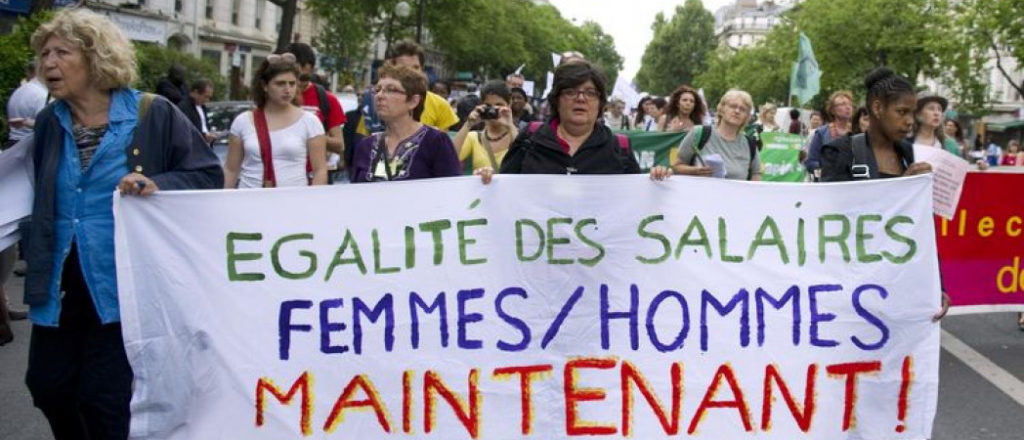
In France, a tumultuous election season has brought to power a new president Emmanuel Macron and a new majority in the parliament from his new party. During his campaign, he presented himself to be neither from the left nor for the right therefore creating the image of the impartial candidate the best capable to reform the country and restore the place of France as a competitive and innovative country. In the communication era, language is everything. The master words were innovation and liberation. He wanted to place the beginning of his presidency under the aegis of decisiveness to mark his difference with his predecessor Francois Hollande accused of being a weak president. As Ministers of the Economy and Labor, respectively, Emmanuel Macron and Myriam El Khomri passed the first bills that changed the balance of power between unions and employers in France.
France has a labor code in which various labor protections negotiated by workers and gained since its inception in 1910 have been registered as laws. Over the past decades the labor code has been presented, especially by the MEDEF (the French Employer Federation), as a heavy book getting heavier making it proportionally responsible for a “heavy” unemployment rate. Although some simplifications of the code could be necessary, the direct link between unemployment and the labor code has never been established. Nonetheless, Emmanuel Macron made reform of the labor code one of his priorities, a way “to liberate France’s energies.” Did his election give him a clear mandate for such drastic action? No, especially since many voted for him in the second round of the election to bar the extreme right wing candidate, Marine Le Pen, from becoming president.
The question of high unemployment rate remained central to the presidential campaign. The idea that the employers were afraid to hire because it was too difficult to fire employees because of the labor code was constantly hammered. More recently, the language of flexibility in labor laws has been associated with the notion of labor well-being. Once again the variable of adjustment in profit making is labor.
We should question the position of women’s employment as it is a magnifier of the inequalities in the distribution of work in a society.
Before the summer a bill was passed to allow this reform to be enacted by decrees. Then, the government of Edouard Philippe (Macron’s Prime Minister) with his Minister of Labor and Unemployment, Muriel Pénicaud, started a three-months-negotiation process with every union including the French Employer Federation MEDEF. Although unions appreciated the process, some were wary at the start that the liberal imprint of this government will force negative transformations of the labor code. The general secretary of Force Ouvrière, (Workers’ Force), who had opposed the previous labor law of the previous government noticed that this government had a real desire to negotiate with the unions. Was it a clever move to lower resistance or a sincere desire for dialogue? In all these negotiations, women’s employment conditions were not taken directly into account.
Because France has a high rate of women fully employed compared to neighboring countries that have moved to more partial time work system, will this reform level down women’s employment? This reform claims to bring flexi-security to the labor market, will it fulfill the promise of the second term for women workers?
In the 1990s, when Germany underwent an even more radical reform of its labor laws, putting “business first” switched most of the burden of social contributions to the employees as opposed to the employers. The official justification was to reduce the unemployment rate. Germany did that with the creation of 4 million jobs but without changing the number of hours worked, 58 billion hours. The reform created “minijobs”, part time work with lower wages and no social protection. We have seen this in the United States. As a result, women have been over-represented in these jobs, increasing gendered precarity in Germany. In contract, France has fewer working poor than Germany today, while Germany boasts one of the highest pay gaps between women and men is Europe today.
French officials claim that they will not implement exactly the same measures as in Germany, but the extension of the use of fixed-term contracts as opposed to permanent contracts belongs to the same thinking. Women are overrepresented in this type of contracts. This means the possible renegotiation of maternity leave, days off for sick children, work conditions for pregnant women, to name but a few.
The reform with its clear commitment to put “business first” rejects the Nordic model which insists on “fair” social and gendered negotiations. When choices have to be made between profit making and the well-being of women employees, women lose.
At the same time, the reform threatens to reduce the importance of currently functioning committees created to protect women’s rights against gender disparity and harassment in the workplace. The reform cuts the financing of the councils that monitor the progress made by companies in reducing inequalities between women and men. Additionally, the cap in the labor court put on compensation for illegal layoffs undermines the power of the labor court to protect workers against abusive employers’ behaviors.
Fifty feminist organizations called on their members to join the September 12th mass demonstrations of against the labor code reforms. They emphasized that there have been three deceptive actions from this government for women’s rights. First candidate Macron promised to keep a full Minister of Women’s Rights in his administration with the same level of budget as before. The Minister has been downsized to a State Secretariat. Second the Minister budget was cut by 27%. The third deception is a “labor code reform” that threaten increased precarity for women who are already make up the majority of those employed in lower wage jobs. They demand that the president Macron respects his engagement toward women’s rights.

(Photo Credit 1; Le Monde) (Photo Credit 2: L’Humanité / Miguel Medina / AFP)